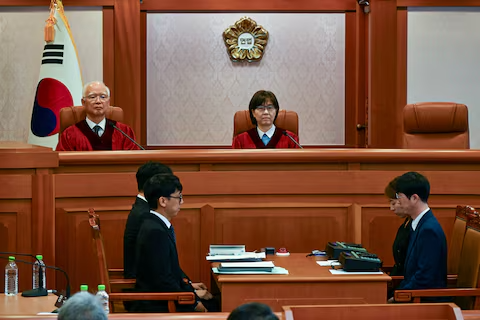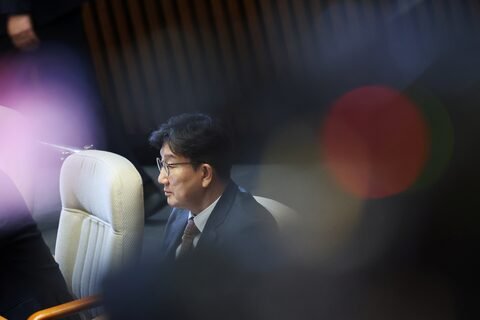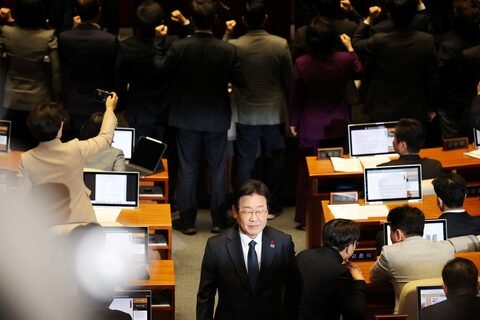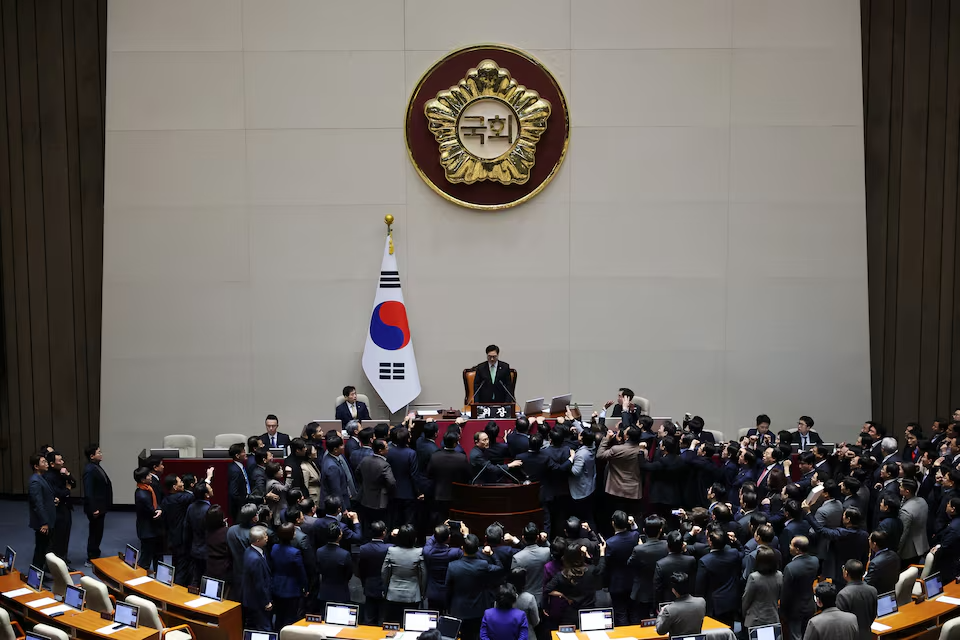On Friday, parliament impeached Acting President Han Duck-soo, posing a historic risk to South Korea’s democratic stability. Following President Yoon Suk Yeol’s impeachment earlier this month, this stunning development portends a further decline into political anarchy for the nation.
South Korea’s Political Crisis Deepens with Acting President’s Impeachment
With 192 votes in the 300-member house, the National Assembly shockingly approved the motion to remove Acting President Han from office. Dramatic scenes surrounded the vote, with members of the ruling People Power Party (PPP) fiercely protesting and denouncing the procedures as “tyranny.” The impeachment is a reflection of the nation’s growing political division and the opposition Democratic Party’s will to control the government.
Han’s unwillingness to name three judges to the Constitutional Court, expressing worries that doing so would go beyond his temporary authority, led to his impeachment. Lee Jae-myung, the head of the opposition, defended Han’s impeachment by claiming that he was “acting for insurrection” and weakening democratic institutions. During a news briefing, Lee stated,
“To restore normalcy, we must root out all insurrection forces.”



Key Events in South Korea’s Political Crisis
The political crisis has unfolded rapidly over the past month, marked by key events that have shaken the nation:
- December 3: President Yoon declares martial law amid nationwide protests and political tensions.
- December 14: Parliament impeaches President Yoon, citing abuse of power and insurrection.
- December 27: Acting President Han Duck-soo is impeached, deepening the crisis.
The chain of events has created a power vacuum, with Finance Minister Choi Sang-mok stepping in as the interim acting president until the Constitutional Court delivers its rulings.
Constitutional Court Takes Center Stage in Political Crisis
The Constitutional Court is currently considering President Yoon’s impeachment; Han’s case will then be considered separately. According to South Korean legislation, the court has up to 180 days to decide each case. The rulings will determine whether the impeachments were legal and whether either leader can be reinstalled, which will have a big influence on the country’s political future.
The court is under tremendous pressure to handle these complicated cases, as observers have observed. Another level of intricacy is added by the fact that there aren’t any justices who have been fully appointed because of the vacancies caused by Han’s inaction. The court’s rulings, according to analysts, will have a significant impact on the integrity of the nation’s democratic institutions as well as its leadership.
Economic Fallout from South Korea’s Political Crisis
The economy of South Korea is starting to suffer as a result of the political unrest. Growing investor nervousness is reflected in the Korean won’s 0.53% drop to 1,475.4 per dollar. The current acting president, Finance Minister Choi Sang-mok, had previously warned lawmakers about the financial consequences of impeaching Han, but his concerns were mostly disregarded.
Companies have voiced their worries about the instability, pointing out that protracted political unpredictability may undermine attempts at economic recovery and attract international investment. In the midst of this extraordinary political turmoil, South Korea’s economy, which has proven resilient in previous global crises, is currently facing severe hurdles.
Democracy Under Strain Amid Political Crisis in South Korea
The situation has sparked debates about the resilience of South Korea’s democratic institutions. Once heralded as a beacon of democracy in Asia, the country now finds itself in uncharted territory, grappling with the simultaneous impeachment of its president and acting president. Critics worry that the turmoil could undermine public trust in governance and democratic norms, while others see it as an opportunity for institutional reform.
Global Reaction to South Korea’s Political Crisis
The political turmoil in South Korea is being closely watched by the world community. Being one of the liveliest democracies in Asia, the nation’s capacity to handle this unique circumstance will be a key indicator of its political stability. The United States and other allies and neighboring nations have voiced their wish for a speedy conclusion to restore stable governance.
Future Outlook: Resolving South Korea’s Political Crisis
South Korea is at a pivotal point in its history as it awaits the Constitutional Court’s decisions. The nation’s political destiny and capacity to bounce back from this catastrophe will be shaped by the court’s rulings. South Koreans are still divided at the moment, with most people applauding the impeachments but becoming cautious about the ongoing unrest.
In the coming months, the world will watch closely as South Korea navigates this political storm, hoping for a resolution that upholds its democratic values while restoring stability and public confidence.

